Russian drones attacked Kernel’s port infrastructure in Odesa region twice between October and December, damaging vegetable oil storage tanks and part of the company’s production facilities, according to Kernel’s operating report for Q2 FY2026.
Preliminary estimates put the company’s losses at around 500 tons of sunflower oil.
Kernel noted that amid intensified attacks on ports in the Black Sea and Danube regions, cargo transshipment at its terminals declined by 11% year-on-year over the six-month period. Prolonged air raid alerts and regular disruptions to port terminal operations also put additional pressure on the company’s operational performance.
On the night of December 24–25, 2025, Kernel’s assets in Odesa region came under a Russian attack. The Illichivsk Oil and Fat Plant (IOFP) in Chornomorsk was hit.
Earlier, on December 20, 2025, a Russian strike damaged the Allseeds vegetable oil transshipment terminal in the port of Pivdennyi, resulting in the loss of thousands of tons of sunflower oil. One person was killed.
On January 5, Russia struck Bunge’s plant in Dnipro, causing 300 tons of oil to spill onto roads.
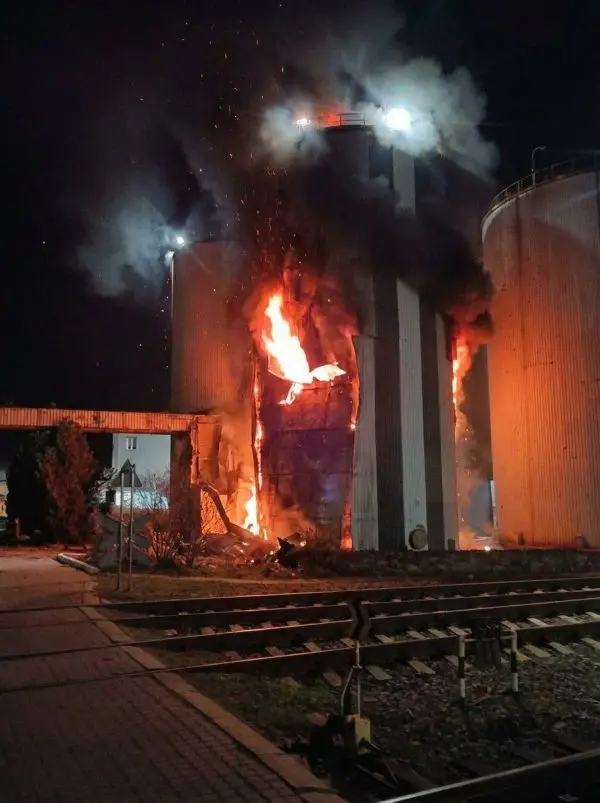
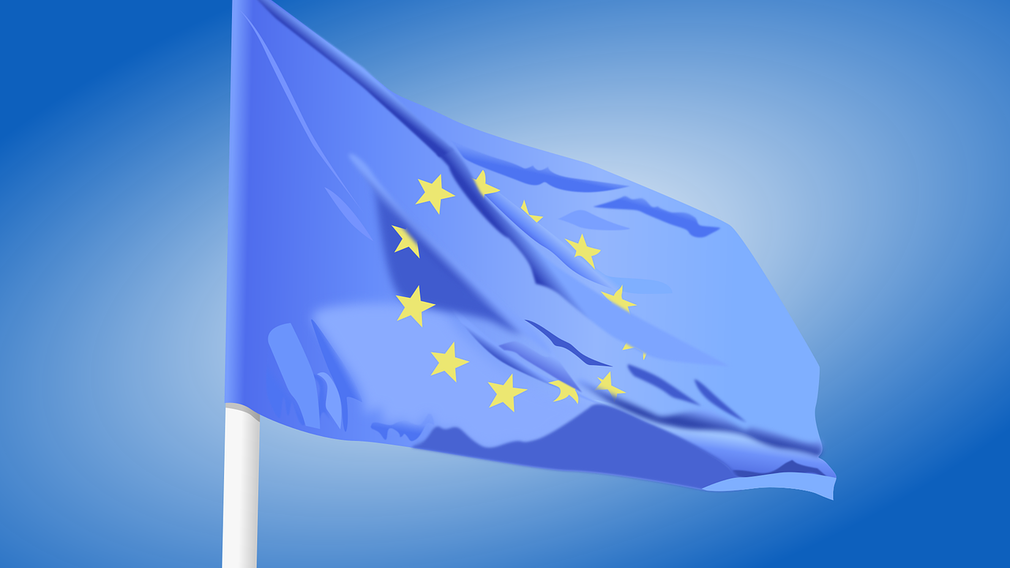
After being signed on 17 January following years of negotiations, the EU-Mercosur trade deal faces a setback after the European Parliament (EP) backed a proposal on Wednesday to send the agreement to the EU’s top court for a legality check, according to a Euractiv report on the same date.
The free trade deal between the European Union (EU) and the Mercosur bloc of South American countries would have a significant impact on agriculture between the countries involved, World Grain reported on 20 January.
However, before taking effect, the agreement had to be ratified by the EP and the Mercosur countries, which includes Argentina, Brazil, Paraguay and Uruguay - all major beef, corn and soyabean producers, the report said.
Bolivia, the newest member, was not included in the trade deal but could join in the coming years, according to the World Grain report.
A narrow majority of 10 members of the EP (MEPs) was key to gaining approval for the resolution, which had been tabled by a cross-party group led by Greens and left-wing lawmakers and backed by liberals, socialists and centre-right politicians, Euractiv wrote.
The text asked the EU’s Court of Justice to verify that parts of the agreement complied with EU treaties, a process that could take over a year.
Commenting on the EP’s decision, the European Commission’s deputy head spokesperson was quoted as saying this came at a time “when the EU must deliver on its [trade] diversification agenda and demonstrate that it remains a reliable and predictable trade partner”.
The dispute centred around a mechanism that would enable Brazil, Argentina, Paraguay and Uruguay to challenge EU legislation, which could impact market access granted under the agreement, Euractiv wrote.
Although discussions on the trade deal started 25 years ago, negotiations had repeatedly stalled and restarted, the World Grain report said.
This week, the Commission adopted nine further acts under the CAP’s secondary legislation to reduce unnecessary bureaucracy and regulatory burden, in line with its commitment to simplification and to strengthening the competitiveness of the farming sector and the wider agri-food value chain.
These changes follow the simplification roadmap of 14 May 2025 and show that the Commission is responding to the sector’s needs and delivering on its promises: cutting red tape, easing administrative burdens for farmers and national administrations, and, in some cases, saving farmers across all Member States up to €215 million annually. In some cases, farmers shall even see around a 20% reduction in the time spent on CAP related administration, freeing up more time for farming rather than paperwork. Further simplification is still on its way, as the Commission now turns its focus to the organic sector, reviewing existing rules and making legislative adjustments as promised.
What do these adopted changes involve?
- In light of ongoing push by the Commission to further reduce control burden by favouring monitoring approach by using digital technologies changes to the secondary legislation are being made. For the Integrated Administration and Control System (IACS) used to administer area- and animal-based CAP payments, the annual quality assessment of its digital elements, Geospatial Aid Application (GSA) and Area Monitoring System (AMS) have been further simplified to reduce workload for Member States and reduce field visits for farmers. Accordingly, the AMS and GSA quality assessment, from 2026, will cover only eligibility conditions that can actually be monitored remotely using mainly Copernicus satellite data. In addition, Member States can now bundle corrective action on LPIS, GSA and AMS. This not only simplifies EU-level rules but also greatly reduces the need for physical farm visits.
- Farmers will no longer be required to record their use of plant protection products in the geospatial application (GSA) system. This change avoids duplicate reporting while maintaining the original policy objectives. This simplification is expected to reduce the burden for farmers regarding the time spent performing this task and allows more time to be spent on farm management. However, it should be remembered that the general requirement of record-keeping of plant protection products is necessary as laid down in the Regulation concerning the placing of plant protection products on the market.
- The rules on how Member States scrutinise certain CAP-related transactions have been simplified, while placing greater importance on a comprehensive risk analysis covering all measures in the selection of undertakings for scrutiny, the new approach provides Member States with greater flexibility to simplify processes and reduce the administrative burden.
- Several changes reduce complexity for producer organisations, especially those operating across borders:
- Approval of transnational producer organisations will now happen in the country where they are based, avoiding duplicate procedures
- Fewer rigid rules on market withdrawals (for example in the fruit and vegetable sector)
- Simpler marketing standards for withdrawn products
- Easier rules for hemp cultivation, including fewer checks and more flexibility for new varieties.
- Further flexibility has been provided to Member States in making amendments to their CAP strategic plans. This will allow Member States to better respond to the arising needs of the agricultural sector.
- ...

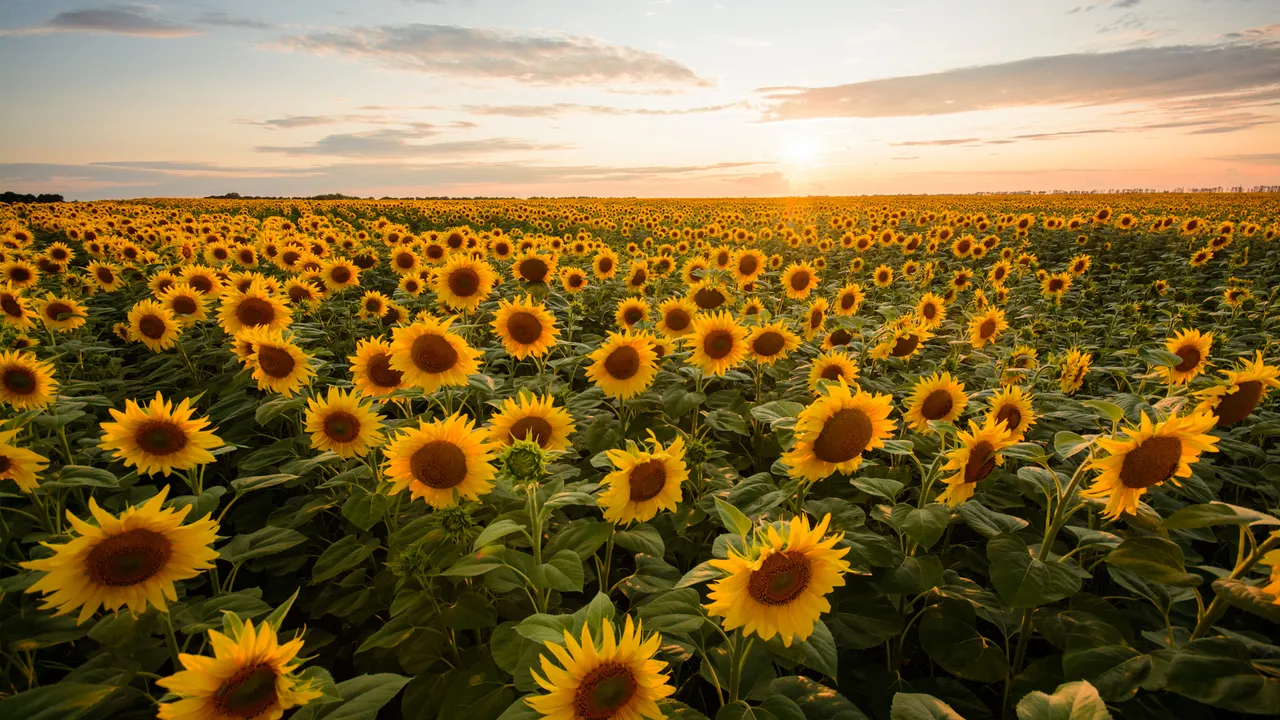
Sunflower boom: U.S. production soars 103% in 2025, setting record highs in yield and acreage
Farms across the U.S. saw an increase of cheery, yellow sunflower fields in 2025, and it shows. According to USDA, 2025 U.S. sunflower production totaled 2.32 billion pounds, up 103% from the record-low production of 2024.
The average U.S. yield of 1,863 pounds per acre increased 193 pounds from 2024 and was the highest on record for the U.S. Planted area, at 1.29 million acres, was 79% more than the previous year. Area harvested increased 82% from 2024 to 1.25 million acres.
North Dakota maintained its status as the leading sunflower-producing state during 2025, with total production of 1.09 billion pounds, an increase of 111% from 2024. Compared with 2024, planted area in North Dakota increased 89%, and yield increased 206 pounds to 1,958 pounds per acre.
Meanwhile, production in South Dakota increased 86% from 2024 to 866 million pounds. Planted acreage in South Dakota, at 449,000 acres, increased 61% from the previous year. The average yield in South Dakota increased 228 pounds from 2024 to a record-high 1,974 pounds per acre.
What drove the increase?
USDA estimated U.S. production of oil-type sunflower varieties at 2.13 billion pounds, representing an increase of 126% from 2024. Compared with last year, harvested acres were up 104%, and the average yield increased by 184 pounds to a record-high 1,848 pounds per acre.
Production of confection sunflower varieties was estimated at 189 million pounds, a decrease of 4% from 2024. Area harvested, at 92,200 acres, was down 21% from 2024. The average yield increased by 354 pounds from 2024 to 2,054 pounds per acre.
In its January grain stocks report, USDA pegged old-crop sunflower stocks in all positions at 209 million pounds, down 63% from a year ago. All stocks stored on farms totaled 21.2 million pounds, and off-farm stocks totaled 187.8 million pounds.
Stocks of oil-type sunflower seed are 170.6 million pounds; of this total, 15.4 million pounds are on-farm stocks, and 155.2 million pounds are off-farm stocks. USDA left old-crop oil-type sunflower stocks unchanged from its September report.
From 2020 to 2024, the production of all vegetable oils in Kazakhstan increased from 464,100 tons to 753,000 tons. Sunflower processing saw the most impressive growth: during this period, sunflower oil production nearly doubled, Xinhua reports, citing data from the Kazakh Statistics Agency.
For the first 11 months of last year (January-November 2025), total vegetable oil production amounted to 807,400 tons (+18.7% compared to the same period in 2024). Sunflower oil production increased by 19.2% to 683,700 tons, accounting for virtually all of the industry’s growth. Sunflower oil’s share of total production reached a record 85.7%.
This increased production directly translated into stronger export potential for the country. Over the four years from 2020 to 2024, these figures doubled—from 220.9 thousand tons to 582.1 thousand tons. For January-November 2025, they reached 690.9 thousand tons (+34.6% compared to 2024).
Sunflower oil exports are showing even higher growth rates. Shipments increased from 127.7 thousand tons in 2020 to 591 thousand tons in the first 11 months of 2025 (an increase of 43% year-on-year). Sunflower oil’s share of total vegetable oil exports consistently exceeds 85%.
These products are actively expanding into neighboring markets. The main importers by purchase volume for January-November 2025 were:
- Uzbekistan – 52.4% of all exports
- China
- Tajikistan
These three countries together account for approximately 92% of all Kazakh exports.
The oil and fat industry of the Republic of Kazakhstan, thanks to increased processing, has propelled the country to 8th place in the global ranking of sunflower oil exporters. The National Association of Oilseed Processors plans to reach 6th place in the global ranking by the end of this year and, in the medium term, become one of the world’s top three suppliers.
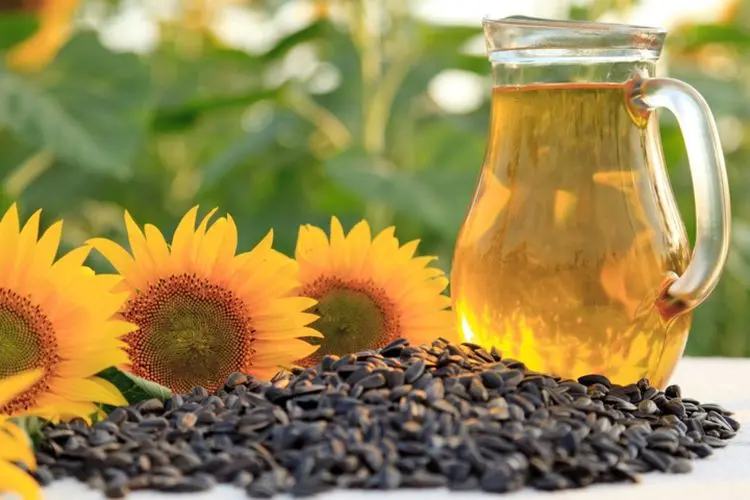
The situation has wrought distress migration and internal displacement, especially in sub-Saharan Africa, South Asia and Latin America
For decades, global agriculture has expanded on the assumption that water systems could sustain growing withdrawals and continue to supply reliable volumes of water over time, supported by infrastructure development, efficiency gains and short-term crisis management.
The latest United Nations report makes clear that this assumption is no longer valid. In many regions, agriculture is no longer operating in a temporary water crisis but within a state of global water bankruptcy, where long-term water use has exceeded renewable inflows and safe depletion limits.
Global Water Bankruptcy: Living Beyond Our Hydrological Means in the Post-Crisis Era released on January 20, 2026 by United Nations University Institute for Water, Environment and Health, warned that the planet has entered the ‘Global Water Bankruptcy era’ and in many areas, rivers, lakes, aquifers, wetlands, soils and glaciers, have been damaged beyond realistic prospects of full recovery.
Roughly 70 per cent of global freshwater withdrawals are used for agriculture, much of it in regions where water availability is already declining or increasingly variable.
Around three billion people and more than half of global food production are located in areas where total water storage, including surface water, soil moisture, snow, ice and groundwater, was declining or unstable, the report noted.
It categorised the scale of exposure — more than 170 million hectares of irrigated cropland, roughly the combined land area of France, Spain, Germany and Italy, as being under high or very high water stress.
The EU is “rapidly” moving towards a clean energy future, but experts warn our “outdated” grid is holding us back.
Wind and solar generated more EU electricity than fossil fuels for the first time in 2025, marking a “major milestone” in the transition to clean power.
A new report from energy think tank Ember has found that renewable energy produced almost half of EU power last year, despite a drop in hydro power and increased use of gas. Wind and solar spearheaded the boom, accounting for a record 30 per cent of EU electricity and overtaking fossil fuels by just one per cent.
While experts have praised the “rapid” transition to renewable energy, experts warn the EU’s “outdated” grid is still holding back progress.
How clean is the EU’s electricity?
The report argues that coal is “nearly on its way out” after power generation fell to a historic low of 9.2 per cent. In 19 EU countries, coal power is now at less than five per cent of total electricity generation.
Over the past decade, reductions in coal haven’t been met with an equal increase in gas or other fossil fuels. However, gas generation in 2025 rose by eight per cent compared to 2024, largely due to reduced hydro output ( -12 per cent) blamed on the EU’s sunny weather and lack of rain.
This pushed the EU power sector’s gas import bill up to €32 billion, 16 per cent higher than the previous year. Analysts also found that price spikes during peak gas-use hours drove an annual increase in wholesale electricity prices across 21 EU member states.
Energy from wind also dropped by two per cent, but it remains the second-highest form of renewable generation. Again, this was attributed to early 2025 being less windy than early 2024.
Over the past five years, fossil power has declined from 36.7 per cent of the EU’s electricity to 29 per cent.
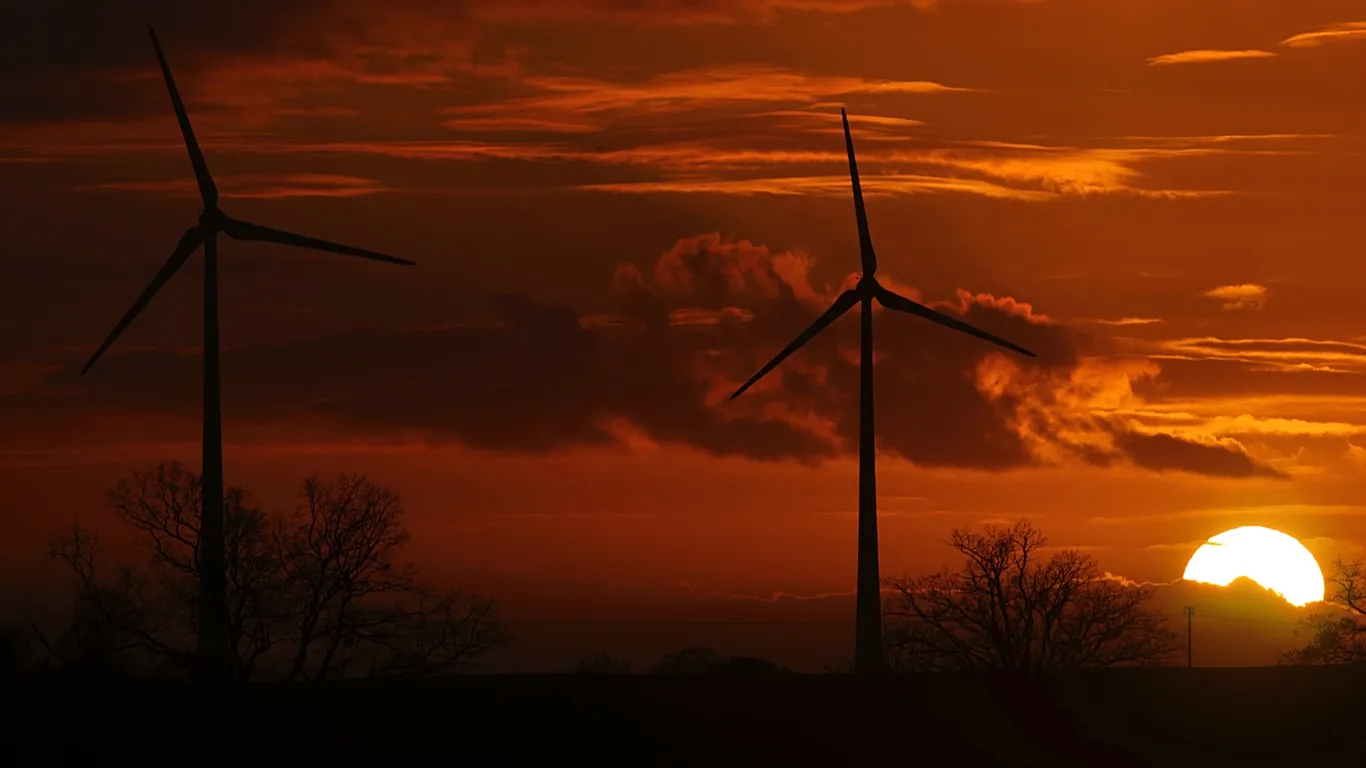
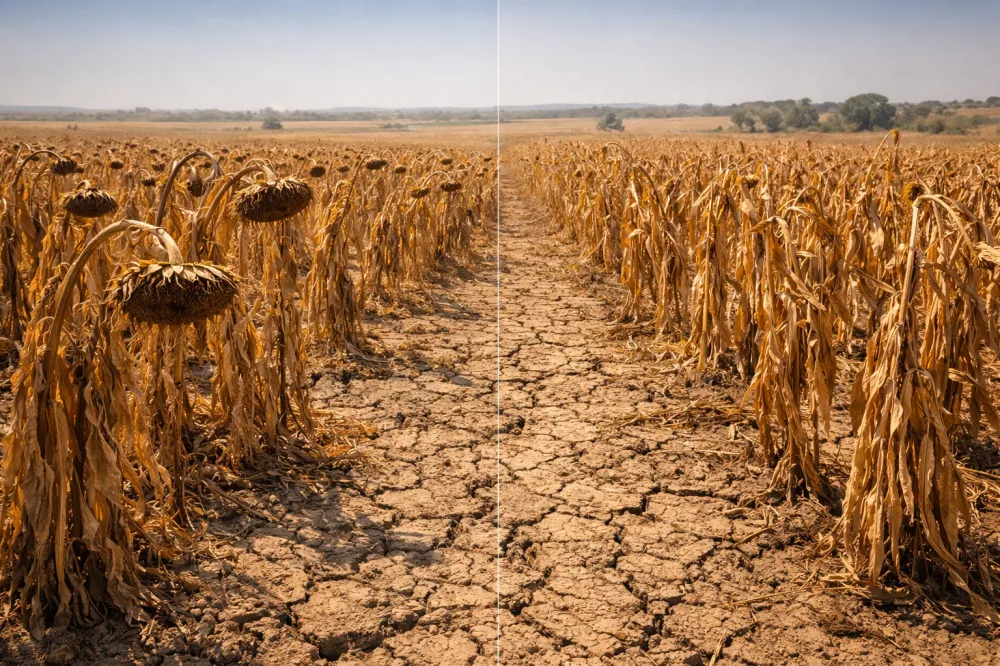
Kherson, Mykolaiv, part of Odesa and Dnipropetrovsk regions are experiencing a difficult drought for the second year in a row. Academician of the National Academy of Agrarian Sciences Vladyslav Cherchel links this to the disappearance of the Kakhovka reservoir, which created its microclimate in the region. During a webinar of the All-Ukrainian Congress of Farmers, the expert voiced a tough recommendation for the southern regions: forget about late spring crops – sunflower and corn.
Dnipropetrovsk region lost its harvest
A vivid example of an unsuccessful strategy is Dnipropetrovsk region in 2025. The region planted a record amount of sunflower – 866 thousand hectares, practically half of all plantings. The result turned out to be disastrous: not even a ton per hectare was obtained.
“We warned at the beginning of spring: if you come out of winter and there is less than 160 mm of moisture in a meter-thick soil layer – forget about late spring crops. They will not yield a harvest,” Cherchel reminds.
Even if one hopes for rain in June-July, the harvest will not be record-breaking – at most one and a half to two tons.
Five cold springs in a row
PhD in Economics Dmytro Liudvenko draws attention to another climatic anomaly: “The fifth spring in a row is cold. Climate change is somehow strange. Over 30 years, the temperature has increased by 2 degrees.”
In 2025, farmers experienced the first real spring frost in 20 years, not just a light frost. Many farms even considered replanting crops.
Irrigation is not a panacea
Can irrigation save the south? Vladyslav Cherchel is categorical: “You can’t irrigate, it’s 100% certain.” The problem is that Ukraine does not have enough water. Even if wells are drilled and underground sources are used, not every type of water can be used for irrigation.
“If Ukraine makes even 10% of the land irrigated, it will be very good. Today we are only losing so far,” the scientist states.